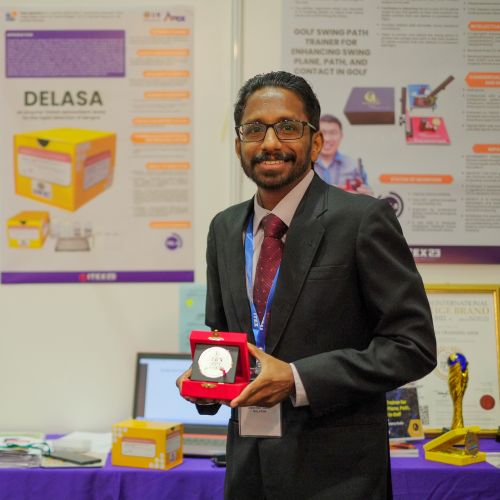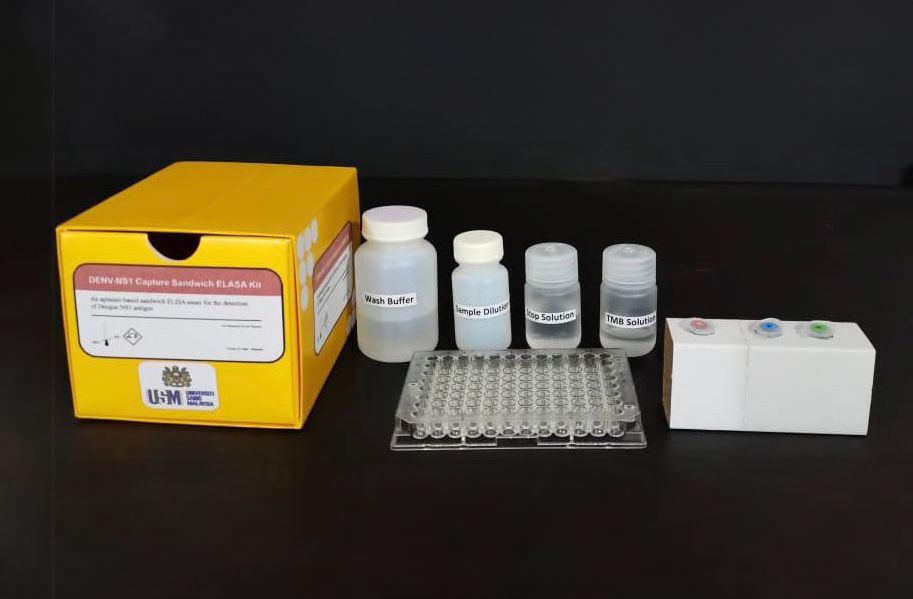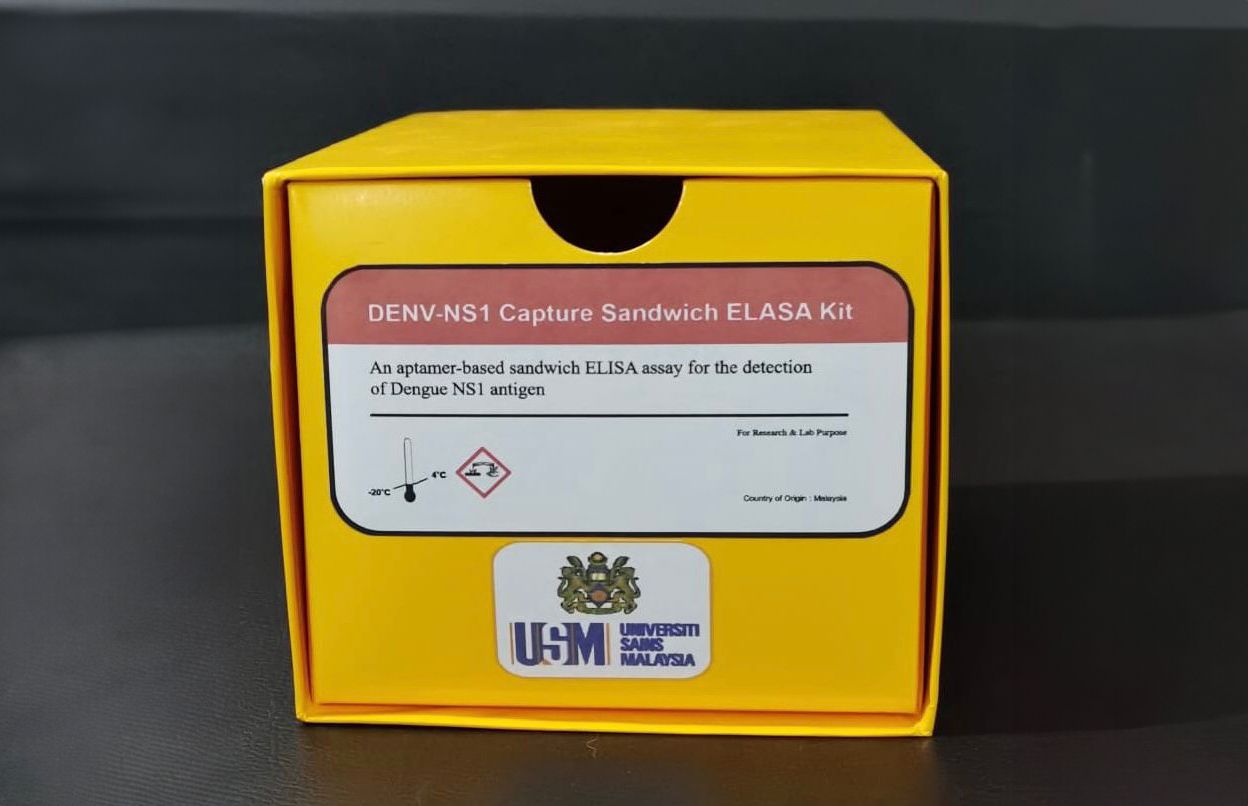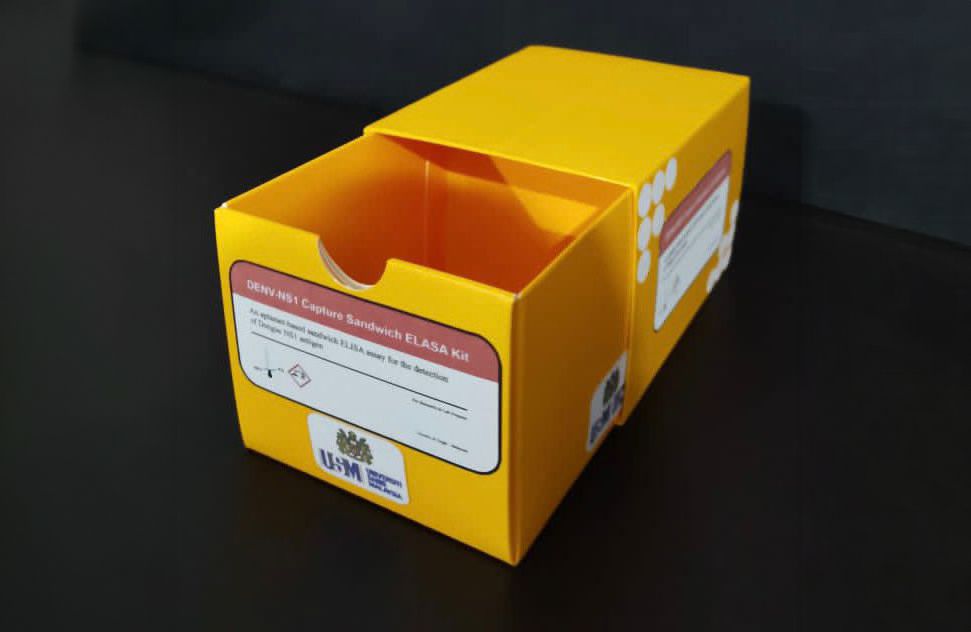DELASA-An Enzyme-Linked Aptasorbent Assay for The Rapid Detection of Dengue

Dr. Citartan Marimuthu, AMDI, USM
Thevendran Ramesh, AMDI, USM
Prof. Tang Thean Hock, AMDI, USM
Dr. Sarah Shigdar, AMDI, USM
Dr. Ch’ng Ewe Seng, AMDI, USM
Dr. Siti Aminah Ahmed, AMDI, USM
Caused by dengue virus, dengue viral infection or dengue fever is one of the most important and widely studied vector-borne diseases. It is estimated that around 3.9 billion people globally are at risk of having this infection. Approximately 70% of the infective cases are prevalent in the Asian regions. The current strategies for dengue diagnostics based on viral isolation/identification and serological-based tests are tedious and time-consuming. Nucleic acid amplification test is also tedious, lengthy, requires trained personnel and is liable to false positivity. Direct and fast detection at the earliest stage is warranted for an effective disease management and this can be delivered by the NS1 protein-based detection. However, the current detection scheme of NS1 is entirely incumbent upon the usage of antibodies that have batch-to-batch variation, expensive and have irreversible denaturation properties. Consequently, molecular recognition elements that can address the disadvantages associated with antibodies could be incorporated into the NS1-based detection system. Here, we demonstrate DELASA, an enzyme-linked aptasorbent assay for the rapid detection of dengue using aptamers specific against the NS1 protein of dengue virus.
Problem Statement
The current NS1 protein-based direct detection of dengue is based on antibodies, which are expensive and have batch-to-batch variation.
Novelty and Inventiveness
Our DELASA system rely on aptamers as the molecular recognition element, which are cheaper and show no batch-to-batch variation.
Applicability and Benefits
Rapid detection of dengue at a much lower cost of production (RM1400 per plate) as compared to the antibody-based ELISA (RM 2500 per plate).
Research Achievement
- Grants type and amount: TED1, RM 96,000.00
- Journal/books/magazine/book chapter: Accepted in the journal Biology (MDPI)
- No of Students fyp/msc/phd: 1 MSc student
Commercialization Potential And Industrial Partner
- Estimated cost of production (RM 1,400 per plate).
- Cheaper than antibody-based ELISA (RM2,500 per plate).
- Hutano Diagnostics Ltd, University of Oxford, UK.
Intellectual Property Status
1 Patent has been filed on 2022 (PI2023001435).
Status of Invention
Technology Readiness Level 4.
Impact of Innovation
- Industry: DELASA, as a precursor for start-up companies based on aptamer-based diagnostics.
- Economic: Aptamers are approximately 10 times cheaper as compared to antibodies, using aptamers in diagnostics can contribute significantly to the economy.
- Society: As one of the very few aptamer-based diagnostics available in the country, the invent of DELASA can promote the efforts to disseminate the significance of aptamers among the community since aptamers are still at its infancy stage in the country.
- Academia: Aptamer-based diagnostics can promulgate the knowledge on the advantages of aptamers and their promising potential in diagnostics among researchers.


